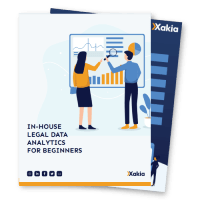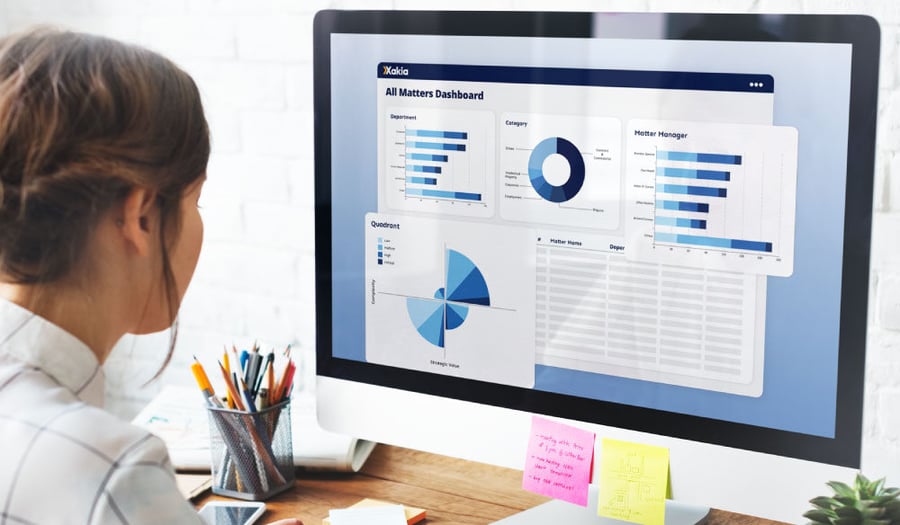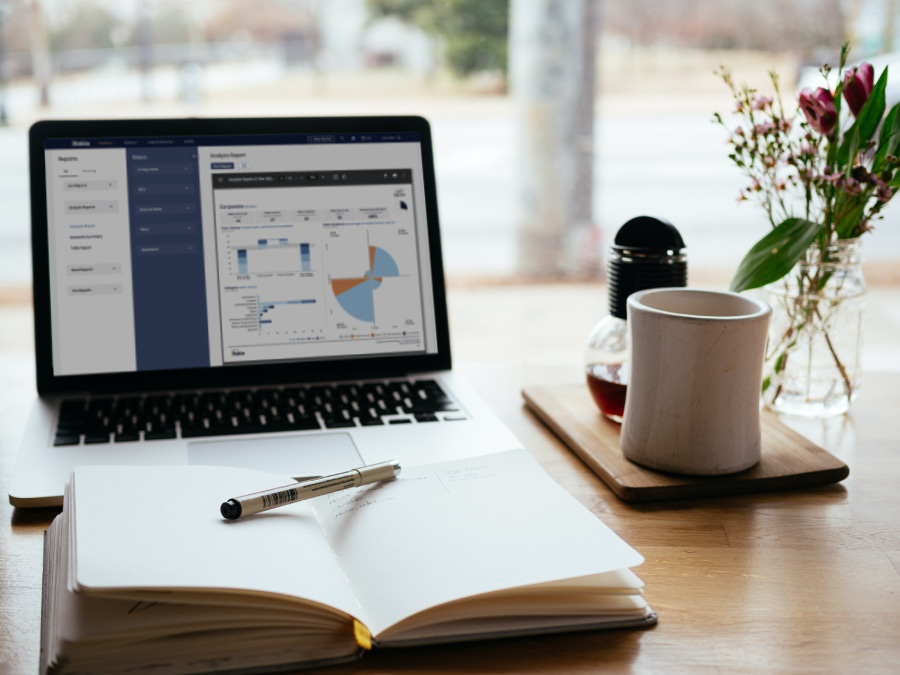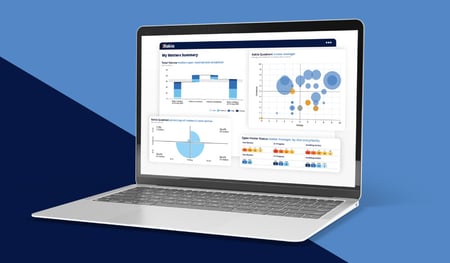In-house legal data analytics for beginners

This Legal Data Analytics for Beginners eBook exists to make legal data analytics accessible for Legal Departments of all sizes and lawyers of all backgrounds.
We'll show you how to collect, apply and share legal data analytics. Download our guide now to learn how to get started in legal data analytics.
Download the white paper
It's time to use legal data analytics to demonstrate the value of the Legal Department to a business!
Legal data analytics should be accessible for Legal Departments of all sizes and lawyers of all backgrounds
The phrase 'legal data analytics' can be quite daunting for corporate Legal Departments.
So, let’s put it into words lawyers use all the time: what are the facts?
Put simply, 'legal data analytics' are the facts and evidence about what you and your in-house Legal Department are doing. Nothing more complex than that.
If you're new to legal data analytics, we're excited for you! There is so much potential for you and your in-house corporate legal team once you properly understand what you are actually doing, and who you are doing it for.
This eBook will guide you on the 'who, what, when, why' information you need, including how to collect it, how to apply it and how to share it with relevant stakeholders with legal analytics software.
In other words, just the facts.

Put simply, 'legal data analytics' are the facts and evidence about what you and your in-house Legal Department are doing. Nothing more complex than that.

The case for legal data analytics
It can be difficult for in-house legal teams to find the time and energy for strategy and organization when it comes to corporate Legal Department information and data.
But the benefits of being able to successfully collect, apply and share the legal data with the help of legal analytics tools can aid in resolving departmental pain points and improving productivity.
If you're feeling the pain:
- You are overworked
- Your work isn't necessarily the most strategic - just the most urgent
- Your information is disaggregated
- Simply tracking “who’s doing what” means sifting through old messages, spreadsheets, Word documents, myriad law firm portals... or worse, what’s stored only in your colleagues’ memories
- What should be a straightforward quarterly report takes hours of trolling through a dozen information sources
If this is your pain, data is your prescription! Legal analytics is about improving your performance…and your quality of life.
In-house corporate Legal Departments who use analytics to inform their decision making, show higher work quality, reduced litigation cost and lower spending.
Source: Gartner
What's the point of legal data analytics?
The concept of collecting, analyzing and acting upon data can be daunting for a team that’s accustomed to Word-based manual reporting or a smorgasbord of spreadsheets.
Here are just a few ways legal analytics software can help your Legal Department:
- Prioritize work
- Allocate resources more efficiently
- Identify work that should be automated, eliminated or managed elsewhere
- Ensure appropriate staffing and workloads
- Manage the legal budget and allocate costs to business units
- Handle external law firms, including fees, deadlines and quality
By quantifying and sorting the work, its risk profile, complexity, resource demands and more, you can measure whether you are getting the right results. When the answer is no, you can adjust accordingly.
Data empowers you to stop acting on anecdotes and hunches, and start making well-informed, proactive decisions.


How can legal data analytics help my in-house Legal Department?
There are many benefits to legal analytics, including:
- Provide a quick, visual understanding of critical Legal Department data points
- Be client-centric and prioritize accordingly
- Easily identify and plug efficiency gaps
- Report to key stakeholders with confidence using legal analytics tools
- Make decisions informed by solid data
- Manage and track success of specific initiatives
I wanted more visibility and insight into the entire portfolio of matters, with an interest in making sure people were spending our limited in-house legal resources on the right projects.
General Counsel, BlueScope Buildings
The mechanics of legal data analytics
It can be tricky to know where to start, especially if you've been running your legal analytics on anecdotal reporting or across a number of different platforms. But before you can analyze the data and before you can act on the data, you must actually collect the data.
You can collect and crunch this data using a couple of different methods:
- Basic Excel spreadsheets
- Matter management software for Legal Departments
That's why we created this beginner's guide to legal data analytics.
We've identified what data points will be most helpful and actionable and the various methods you can use to collect and crunch the data. It's easy with an in house legal department software - it's all done for you!


Get on top of your strategy
Implementing a successful data strategy
Whilst every corporate Legal Department is different, the fundamentals of legal data analytics are universal. We've identified that a successful data program covers four key factors behind your legal matters. Once collected and interpreted, these metrics will help make your legal department be more productive, more valuable to the C-suite, and far less stressed.
Our eBook delves deep into the best practice approach to creating a straightforward legal data analytics strategy and its implementation.
While better management of capacity, capability and cost is helpful within the corporate Legal Department, there’s another important benefit of legal data analytics: it can demonstrate the value of your legal team to the business.
As in-house counsel, you have tremendous value. It’s time to use legal data analytics to prove it.
Download our guide to in-house legal data analytics for beginners now
Our mission is to make legal data analytics accessible for in-house legal departments of all sizes. You don’t need a big legal department to implement a data program, or a background in math, science or engineering and you don’t need to find another batch of hours in your day. It's easy with legal analytics software!
Complete the form and download our eBook now to get started.
Simple. Powerful. Affordable. Try Xakia.
Legal matter management for in-house legal teams who need to ruthlessly triage the chaos